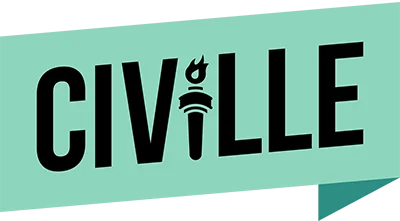
Hosting a blog on your law firm’s website provides a wealth of benefits for your law firm. A blog allows you to reach potential clients with valuable SEO-driven content, generate leads for your law firm, and answer questions that potential clients have in a fun and informative way.
Blog content also has the benefit of showcasing your expertise in the legal field and positioning yourself as a thought leader when juxtaposed with other law firms in the same practice area. High-quality blog content has the added advantage of increasing your online visibility and presence with well thought out SEO content, giving you the ability to target specific practice areas, questions, or concerns, and provides opportunities to receive valuable backlinks from other websites.
With all of that being said — law firm blogs have become increasingly essential elements to the success of your law firm in a modern and digital era — but a law firm blog needs to be done the right way. That is where Civille can help with this overview of what makes a successful legal blog and highlights key elements of a well-crafted and insightful law firm blog.
Contact Civille today to learn more about our custom law firm websites and digital marketing services!
READ MORE: How Is Google’s AI Mode Affecting Law Firm Search
4 Key Elements of a Successful Legal Blog
When you make the decision to add a blog to your law firm’s website, it is important to do it the right way, employ best practices, and ensure that all of the key elements of a great legal blog are in place. This list of 4 Key Elements of a Successful Legal Blog will help you establish a strong foundation for your law firm’s SEO practices that will help you reach more potential clients and drive long-term success.

1. Informed and Easy-to-Read Content
The most important element of any legal blog is high-quality informed content that is easy-to-read for potential clients. When potential clients read a law firm’s blog, it is important that the content is easy to read and understand. People who visit a legal blog often have real questions and are faced with difficult circumstances, making it important for you to write your content in a way that is easy for someone without a legal background to understand without unnecessary legal jargon.
In addition — a good legal blog needs to be well structured with clear headings and subheadings that will help increase the SEO value of content and a format that makes key points stand out with lists that are easy to read. A well thought out blog will also provide real-world examples of legal concepts and maintain a professional tone that reflects the potential circumstances that readers may be faced with.
2. Engaging and Value-Driven Content
What kind of content are visitors to your website looking for? While high-quality content that follows best SEO practices is important, it is equally important that your content be engaging and highlight topics that potential clients are interested in. Blog posts that specifically target and answer Frequently Asked Questions (FAQs) are informative, educational, and engaging for readers and help establish your law firm as a valuable legal resource, leading to increased value and potential leads. Additional blog content that can help engage readers includes content that looks at the legal aspects of current events, how-to blogs, and local content that highlights key elements of the law in your area.
3. SEO Best Practices
Search Engine Optimization (SEO) is the process of writing content and improving website performance to help your website rank higher on Search Engine Results Pages (SERPs) and be more visible and discoverable online for potential clients. This means writing with intention and using titles and keywords that reflect what potential clients type into the search bar on Google, Yahoo, or Firefox. This may require keyword research to find topics, titles, and keywords that will not only generate a higher volume of traffic, but are important to your target audience. SEO best practices that you should be aware of when you create your legal blog include to avoid overstuffing your blog with your keywords, including variations of your keyword or related keywords in structured subheadlines, including an SEO title for your blog post, and including meta data with your blog post.
4. Data and Analytics
You can follow all of the best SEO practices and write engaging content — but if you do not know how your law firm’s blog is performing, you never know when or if changes need to be made. Google Analytics, Google Search Console, SEMrush, and other platforms provide valuable data and analytics that can help keep you informed on how your content strategies are working. With the right tools and analytics, you can identify what type of content works best and reaches the right audience for your law firm and adjust your SEO strategies according to this data. By making data-driven decisions, you can make targeted improvements to your blog and provide valuable content for more potential clients.
READ MORE: SEO Basics for Attorneys
Why Choose Civille for Your Legal Blog
We know that creating a legal blog for your law firm can feel complicated if you do not have a background in website design, SEO practices, and analytics. You may not know what makes a successful legal blog — but that is where Civille can lend a helping hand.
Civille provides law firms with a wealth of online services that include custom websites built for search engines with industry-best page speeds, custom interior page content, conversion optimization, and enhanced security. With Civille digital marketing services, we will help you build a successful legal blog with Search Engine Optimization services and content marketing that are provided by qualified and experienced content writers — with many that have a background in law. With the added benefits of Google Business Profile (GBP) optimization and paid advertising, we can help you build a successful legal blog and reach more potential clients online.
Contact the Civille Team today for more information on the services we provide to help you build your online brand!





